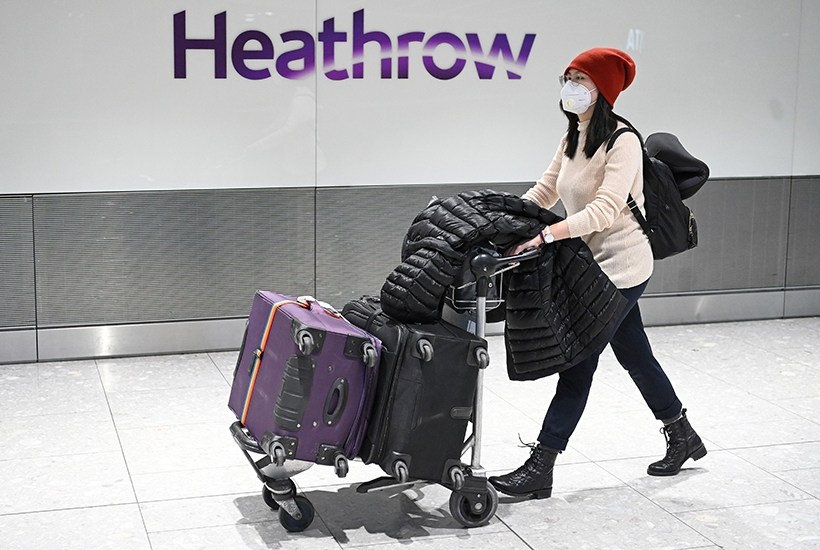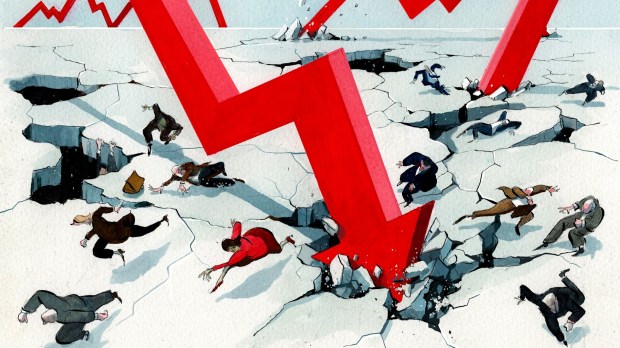All logic suggests that the 14-day quarantine for arrivals from abroad really is, as Michael O’Leary of Ryanair put it, ‘a political stunt’. The best explanation is that it was conceived in Downing Street — with minimal consultation, unless someone rang Armando Iannucci, writer of The Thick of It — as a sop to focus-group xenophobia and parental anxiety, as well as a show of grip after the Dominic Cummings debacle. Its absurdity is highlighted by news that the West Indies cricket squad is now quarantined, while 122 high-goal polo players were reported to have beaten the deadline by slipping in last Saturday on a charter flight from Buenos Aires via the Covid cauldron that is São Paulo in Brazil.
The new rule can’t seriously be intended to deter a flood of foreign tourists: with our zero hospitality offer and stubborn infection rates, who would holiday here now? It always made sense to block arrivals from places where the virus is raging, though we didn’t. But as the economy emerges from coma, we surely don’t want to impede inward investors, buyers of UK products or export salesmen homeward-bound from the many parts of the world not in that category.
So that leaves only one target: Brits hoping for a break somewhere abroad where there’s less chance of catching Covid-19. Perhaps Downing Street thinks that would be socially divisive and sees economic benefit in forcing us to spend or save at home. Sidestepping the question, the Prime Minister blustered about Foreign Office advice on ‘essential travel’. But you could read the real answer in his eyes: light that barbie with those Mediterranean brochures, folks, because this summer you’re going nowhere.
Concrete progress
Good news: construction of the Hinkley Point nuclear plant’s second reactor base has been completed on time, despite a halved workforce to allow for social distancing. Assuming no technical hitches, the Somerset power station being built by EDF of France with one-third Chinese backing is on track for 2025, when it will start generating 7 per cent of our electricity needs. But doubt now hangs over China’s 20 per cent option in the next EDF nuclear project, Sizewell C in Suffolk — and even more so over Bradwell in Essex, where the Chinese would take the lead and use their own design.
Beijing’s London ambassador Liu Xiaoming has threatened that if the tele-coms giant Huawei is excluded from UK 5G networks, his masters may withdraw from other investments in UK infrastructure, including HS2 as well as nuclear. Meanwhile, Tory MPs have fuelled the fire by calling for the China General Nuclear Power Group to be scrutinised as a potential security risk akin to Huawei.
The stand-off has implications both for capacity and cost, since Sizewell, a cheaper-to-build replica of Hinkley Point, would average down the cost of nuclear power, and Bradwell even more so. If we only get Hinkley Point (two other nuclear projects, Wylfa in North Wales and Moorside in Cumbria, having already stalled), its output will be not only staggeringly expensive but also insufficient to plug an energy gap that can never be filled by offshore wind — reduced lockdown levels of power usage being no guide to future demand.
Pragmatism in dealings with China can easily look like kowtowing — as it does with the support of HSBC and Standard Chartered for proposed Hong Kong security laws — or cynical opportunism, as it did when George Osborne pushed for the Chinese stake in Hinkley Point in 2015. But if the alternative, as I’ve often warned, is shivering in the dark, that moral dilemma could come into sharper focus in a decade’s time.
Back in court
Normality returns: Barclays in back in court. And guess what, the subject matter of the case (civil rather than criminal this time) is the bank’s 2008 emergency capital-raising from Gulf investors that enabled it to avoid a taxpayer bailout: a set of transactions which, despite previous acquittals of senior executives, has never shaken the whiff that it tested City norms to the limit. Attention now focuses on Amanda Staveley, the femme fatale of Middle East finance taking time out from her role as broker of the Saudi bid for Newcastle United of which I wrote a fortnight ago. On behalf of Sheikh Mansour of Abu Dhabi and her own firm, PCP Capital Partners, she is suing the bank for £1.5 billion, claiming they were unfairly treated in relation to richer terms offered to Qatari investors, the legality of which has already twice been tested in the High Court.
Barclays says the lawsuit is ‘without merit’. Staveley’s magnetism will make it the best show of a curtailed legal season. A gaggle of QCs will reap royal rewards for the umpteenth time. And all other holders of Barclays shares — currently back where they stood in late 2008 — will look forward to the day this chapter finally closes.
Vicarious dining
If quarantine persists, it will scotch my seasonal offering of continental restaurant tips which many readers tell me they’re waiting for. But at least we can eat vicariously, thanks to my network of foreign correspondents. Nana Smith from Rome recommends Pizzeria da Baffetto in the usually heaving centro storico — where a pleasant post-lockdown calm prevails, outside dining disturbed only by ‘the occasional hum of a Vespa’. Richard Lesmoir-Gordon, in south-west France, describes the festive, full-house reopening of La Table du Cardinal, flagship restaurant of the small town of Montpezat-de-Quercy — where everyone is sympathetic to a small price increase (to just €18.50 for lunch) covering extra hygiene costs, but mandatory masks for customers when not seated, as well as for staff, are ‘widely seen as ridiculous’. Oh and the cuisse de poulet fondante crème au cabecou fermier was outstanding. Do send reports from wherever you are: martin@spectator.co.uk.
Got something to add? Join the discussion and comment below.
Get 10 issues for just $10
Subscribe to The Spectator Australia today for the next 10 magazine issues, plus full online access, for just $10.
You might disagree with half of it, but you’ll enjoy reading all of it. Try your first month for free, then just $2 a week for the remainder of your first year.















Comments
Don't miss out
Join the conversation with other Spectator Australia readers. Subscribe to leave a comment.
SUBSCRIBEAlready a subscriber? Log in